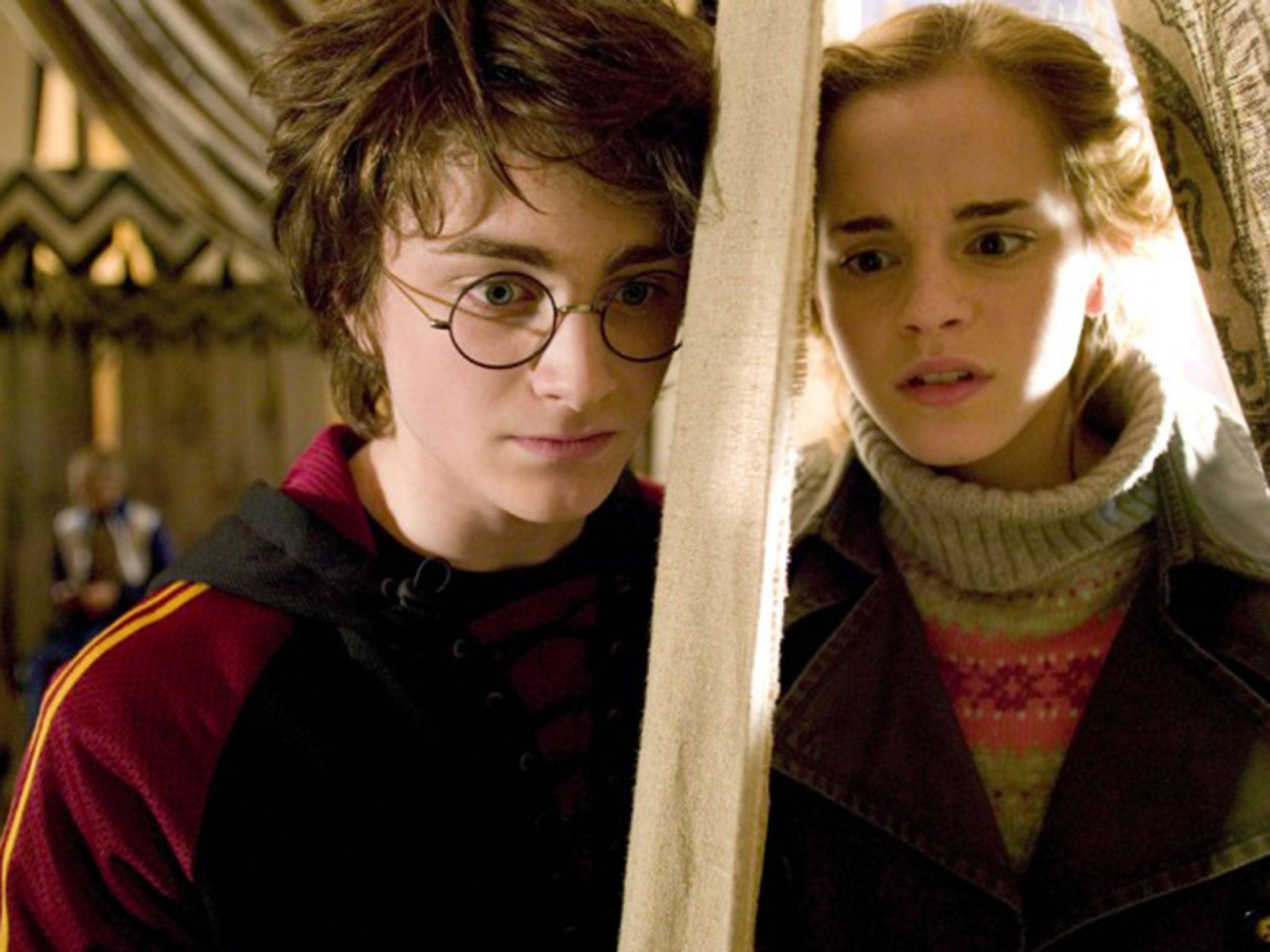What is shipping? Your chance to make Harry end up with Hermione
Want Holmes to romance Watson? Whether you know it or not, you are 'shipping'. Gillian Orr on a handy addition to the dictionary

Your support helps us to tell the story
From reproductive rights to climate change to Big Tech, The Independent is on the ground when the story is developing. Whether it's investigating the financials of Elon Musk's pro-Trump PAC or producing our latest documentary, 'The A Word', which shines a light on the American women fighting for reproductive rights, we know how important it is to parse out the facts from the messaging.
At such a critical moment in US history, we need reporters on the ground. Your donation allows us to keep sending journalists to speak to both sides of the story.
The Independent is trusted by Americans across the entire political spectrum. And unlike many other quality news outlets, we choose not to lock Americans out of our reporting and analysis with paywalls. We believe quality journalism should be available to everyone, paid for by those who can afford it.
Your support makes all the difference.Among the numerous new entries recently announced to be joining the hallowed pages of the Oxford English Dictionary were "cryptocurrency", "zero-hours" and "bikeable". But it was perhaps the addition of a new meaning of "shipping" that left most wordsmiths scratching their heads. For shipping no longer refers solely to the transporting of goods by sea, and as with most re-routing of words, we have the internet to thank.
If you've ever willed Harry and Hermione to swap their insults for embraces, or wished Holmes and Watson would surrender to the obvious chemistry between them, then you've, maybe unwittingly, already taken part in shipping.
Derived from "to relationship", shipping is the championing of two characters to get together. It has exploded with the burgeoning popularity of online fan fiction, which sees users write up details of (as-yet unfulfilled) romances. All ages are involved in shipping, and while plenty is sweet, teen fan-girling, some will leave you blushing and checking that you've not accidentally clicked on to a porn site.
One of the first fictional couples to be shipped was The X-Files' Mulder and Scully. Fans were divided into "relationshippers", who longed for the FBI Special Agents to lock lips, and the "noromos", who wanted their association to remain strictly professional. Another early example (and a rather curious one) was the shipping of certain Pokemons. Apparently Jessie and James were made for each other, the unconsummated darlings of Japanese anime, if you will.
Usually, fans will give a couple their own moniker, often a portmanteau of their names. X-Files fans liked to use Sculder or MSR (quite simply Mulder-Scully Romance).
Any kind of relationship can be acknowledged. From the obvious "will they, won't they" couples to inter-species intimacy, one rule of the shipping community is that if at least one person wants to see a certain pairing, then it's a legitimate ship. Nor is it limited to modern-day culture; you'll find sites dedicated to shipping the heroes and heroines of classic literature, such as Jo and Laurie in Little Women.
One of the most popular practices is to pair up characters into homosexual relationships (or slash ships). While many Harry Potter fans longed for the wizard schoolboy to end up with Hermione (indeed, JK Rowling herself suggested this should have been the case), even more wanted to see him get it on with his enemy Draco (that one's called Drarry).
Some pretty interesting artwork of proposed couples in imagined situations is also a big part of the culture. When James McAvoy and Michael Fassbender appeared on The Graham Norton Show a couple of weeks ago to promote their new film, X-Men: Days of Future Past, the host presented the two actors with drawings of them (as their characters, Charles and Erik, respectively) in some loved-up scenarios, including feeding each other cupcakes, and baking cookies. This hook-up is called, you guessed it, McBender.
Television producers also routinely play up to shippers. Sherlock executives have ensured that "Johnlock" fans are kept happy by including numerous incidents in which the colleagues are assumed to be a couple, while the producers of Xena: Warrior Princess peppered the script with humorous lesbian innuendo after they discovered that fans were discussing the possibility of a relationship between Xena and her best friend, Gabrielle. As a result, the show acquired a huge following in the sapphic community.
But perhaps the most famous ship today is not based on fictional characters, but rather two real people. A number of fans of One Direction's Harry Styles and Louis Tomlinson have, rather curiously, longed for a romance between them, calling the duo Larry Stylinson, and writing stories about them that can run into hundreds of thousands of words. Why teenage girls – which most of the authors are – like to imagine their crushes are gay is anyone's guess, but it's clear that fandom has moved on from the days when a sticker book and a couple of posters were all you needed to acknowledge your allegiance.
Join our commenting forum
Join thought-provoking conversations, follow other Independent readers and see their replies
Comments